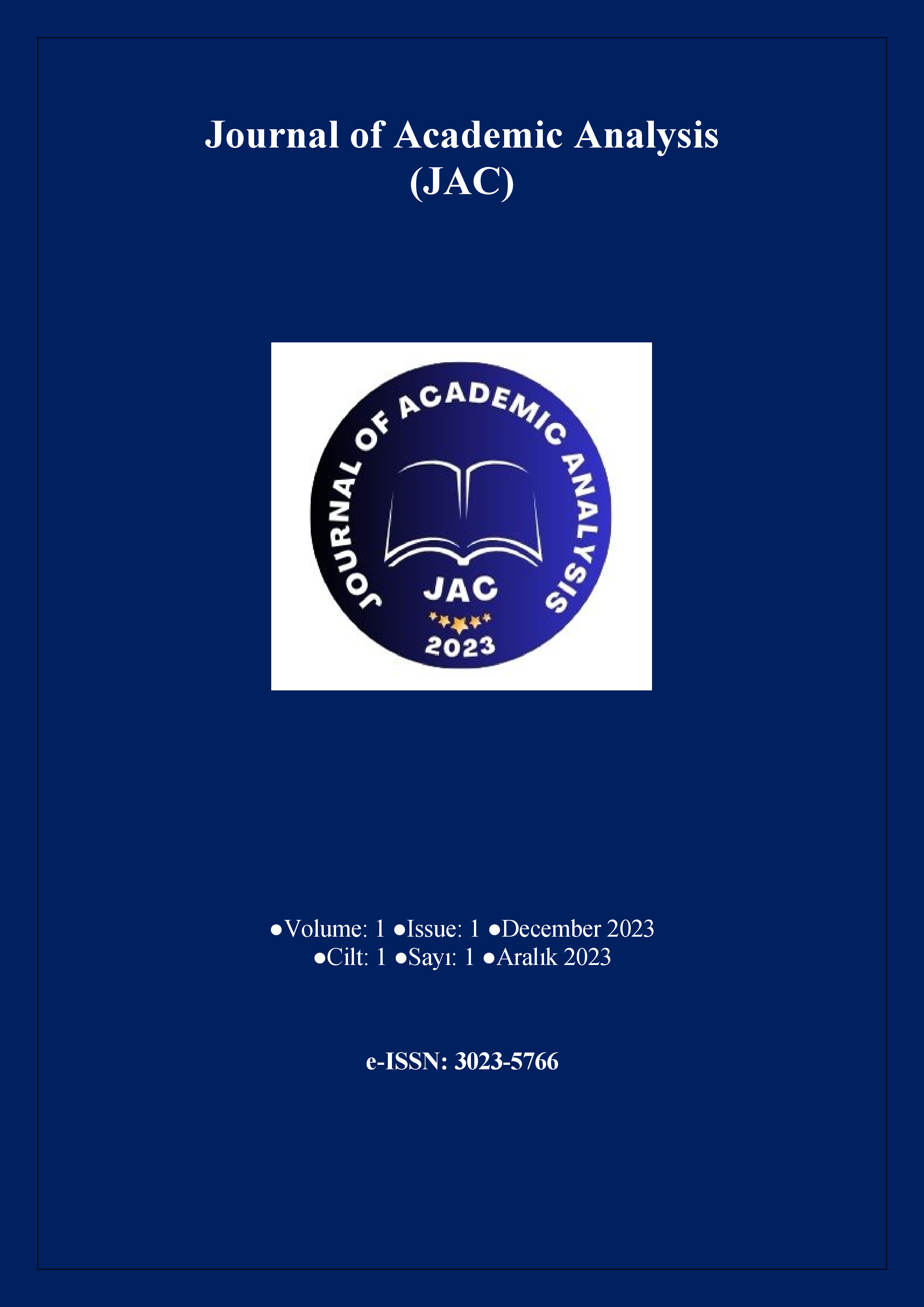Quiet Quitting As A New Concept: Characteristics, Recognition and Prevention
Keywords:
Quiet Quitting, Remote Working, Human CapitalAbstract
The COVID-19 epidemic, which broke out in 2019, caused radical changes in our business life as well as our social life. First, lockdowns began. Business life was put on the back burner and the impact of the pandemic was expected to decrease. However, the pandemic was gaining more and more power. Managers and leaders who did not know when this process would end, found the solution with remote working. They were increasing the pressure on employees by holding online meetings, and ensuring that employees who were alone with their families at home were working hard at home without leaving any room for their private lives. Employees who were worried that the pandemic would affect their health, made changes in their business approach. Thereupon, employees started to do only jobs that were in line with their job descriptions, and they began to refuse to do many different jobs that they used to do at work in their normal lives. They began to feel less institutional belonging. They started to put in the minimum amount of work effort that would only keep them in that job. Even though they didn't know it, what they actually did was a quiet quitting that was just starting to become conceptual. In this study, the concept of quiet quitting, the emergence of the concept, the importance of the concept, the factors that cause quiet quitting and recommendations to prevent quiet quitting are examined. This study, which was conducted using qualitative methods, is a descriptive research carried out in order to contribute to the literature on quiet quitting, which is a new concept, and to be a source for future studies. The study was concluded with evaluations and suggestions regarding the concept of quiet quitting.
References
Ayachit, M., & Chitta, S. (2022). A systematic review of Burnout studies from the Hospitality literature. Journal of Hospitality Marketing & Management, 31(2), 125-144.
Buchanan, K., & Bardi, A. (2015). The roles of values, behavior, and value-behavior fit in the relation of agency and communion to well-being. Journal of Personality, 83(3), 320-333.
Buscaglia, M. (2022). A Quick Look at the Origins and Outcomes of the Trendy Term. Chicago Tribune. PressReader.com-Digital Newspaper & Magazine Subscriptions. (Erişim Tarihi: 03.11.2022)
Clifton, J., & Harter, J. (2019). It's the Manager. Omaha, NE: Gallup Press.
Cumhuriyet (2022). “Farkında olmadan işten ayrılmış olabilirsiniz: Sessiz istifa nedir, 'ana neden' ne?”. https://www.cumhuriyet.com.tr/yasam/galeri-farkinda-olmadan-isten-ayrilmis-olabilirsiniz-sessiz-istifa-nedir-ne-anlama-geliyor-1980125#photo-4 (Erişim Tarihi: 19.04.2023).
Diener, E., & Lucas, R. E. (2000). Explaining differences in societal levels of happiness: Relative standards, need fulfillment, culture and evaluation theory. Journal of Happiness Studies: An Interdisciplinary Forum on Subjective Well-Being, 1(1), 41-78.
Duman, C. (2022). “Büyük istifadan sonra sesssiz istifa”. Independent Türkçe, https://www.indyturk.com/node/547061/t%C3%BCrki%CC%87yeden-sesler/b%C3%BCy%C3%BCk-istifadan-sonra-sessiz-istifa (Erişim Tarihi: 27.10.2022).
Ellis, L. & Yang, A. (2022) If Your Co-Workers Are ‘Quit Quitting’, Here’s What That Means. The Wall Street Journal. https://www.wsj.com/articles/if-your-gen-z-co-workers-are-quiet-quitting-heres-what-that-means-11660260608 (Erişim Tarihi: 23.05.2023).
Gallup (2022). Gallup's Employee Engagement Survey: Ask the Right Questions With the Q12 Survey. https://www.gallup.com/workplace/356063/gallup-q12-employee-engagement-survey.aspx (Erişim Tarihi: 08.09.2022).
Hare, N. (2022) What Is ‘Quiet Quitting’ And How Should Leaders Respond? Forbes. https://www-forbes.com.cdn.ampproject.org/c/s/www.forbes.com/sites/allbusiness/2022/09/01/what-is-quiet quitting-and-how-should-leaders-respond/amp/ (Erişim Tarihi: 14.09.2022).
Harter, J. (2022). Is Quiet Quitting Real? Gallup Inc, https://www.gallup.com/workplace/398306/quiet-quitting-real.aspx (Erişim Tarihi: 20.12.2022)
Klotz, A. C. & Bolino, M. C. (2022). When Quiet Quitting Is Worse Than the Real Thing, Harvard Business Review.
Kobal, G. & Batı, S. (2022). “Eski bir alışkanlık, yeni bir akım: Sessiz istifa yaşayanlar anlatıyor, uzmanlar yorumluyor”.
Hürriyet, https://www.hurriyet.com.tr/gundem/eski-bir-aliskanlik-yeni-bir-akim-sessiz-istifa-yasayanlar-anlatiyor-uzmanlar-yorumluyor-42127939 (Erişim Tarihi: 02.10.2022).
Korsgaard, M. A., Meglino, B. M., & Lester, S. W. (1997). Beyond helping: Do other-oriented values have broader implications in organizations?. Journal of Applied Psychology, 82(1), 160-177.
Özer, Y. (2022). “Gürültülü sessizlik”. Dünya, https://www.dunya.com/kose-yazisi/gurultulu-sessizlik/670372 (Erişim Tarihi: 28.10.2022).
Sandro, F. & Fabiola, S. (2022). The great resignation and quiet quitting paradigm shifts: An overview of current situation and future research directions. Journal of Hospitality Marketing & Management, 31(8), 899-907.
Schwartz, T., & Porath, C. (2014). The Power of Meeting Your Employees’ Needs. Harvard Business Review. Harvard Business Publishing., https://hbr.org/2014/06/the-power-of-meeting-your-employees-needs (Erişim Tarihi: 18.05.2023)
Smith, S. (2022). Quiet quitting: a wake-up call for better management: How to recognize and combat quiet quitting. HMC Sales, Marketing & Alliances Excellence, 21(10), 28-29.
Stokes, C. (2022). Mitigating “quiet quitting.” Public Relations Strategies & Tactics, 5(9), 7.
Van den Broeck, A., Vansteenkiste, M., De Witte, H., Soenens, B., & Lens, W. (2010). Capturing autonomy, competence, and relatedness at work: Construction and initial validation of the Work-Related Basic Need Satisfaction
Scale. Journal of Occupational and Organizational Psychology, 83(4), 981-1002.
Zenger, J., & Folkman, J. (2022). Quiet quitting is about bad bosses, not bad employees. Harvard Business Review. https://hbr.org/2022/08/quiet-quitting-is-about-bad-bosses-not-bad-employees (Erişim Tarihi: 24.10.2022)
Downloads
Published
How to Cite
Issue
Section
License
Copyright (c) 2023 Journal of Academic Analysis

This work is licensed under a Creative Commons Attribution 4.0 International License.



